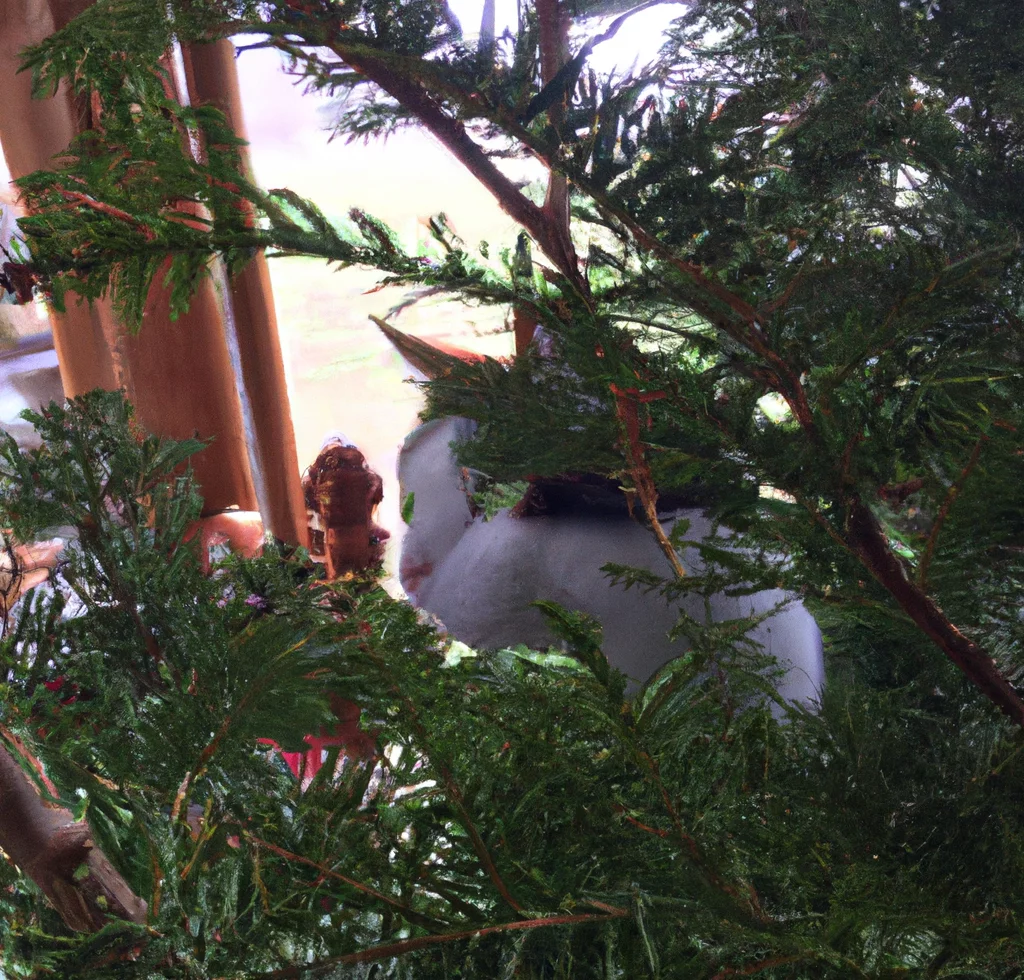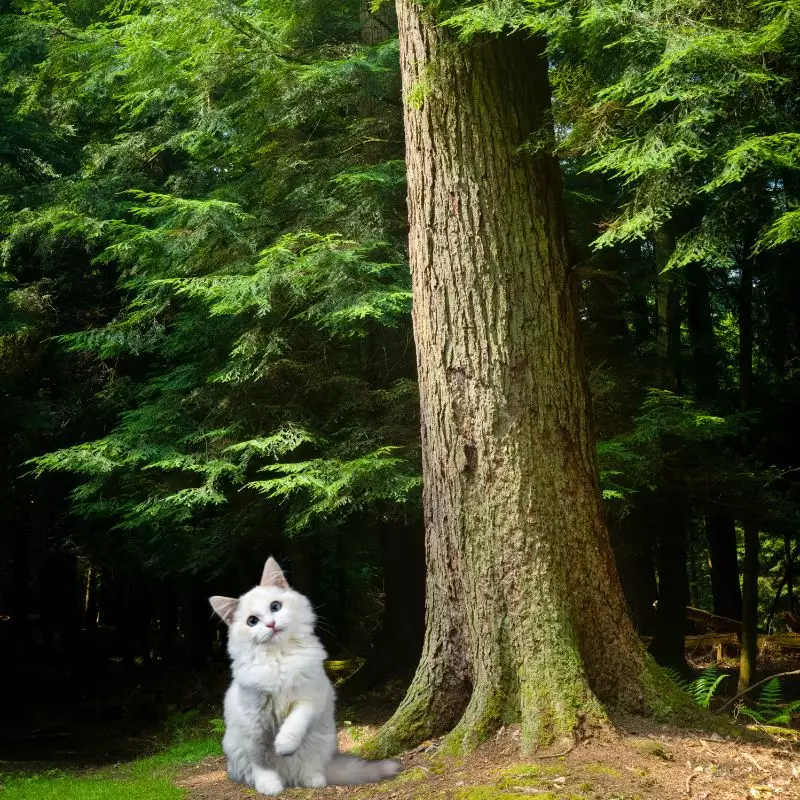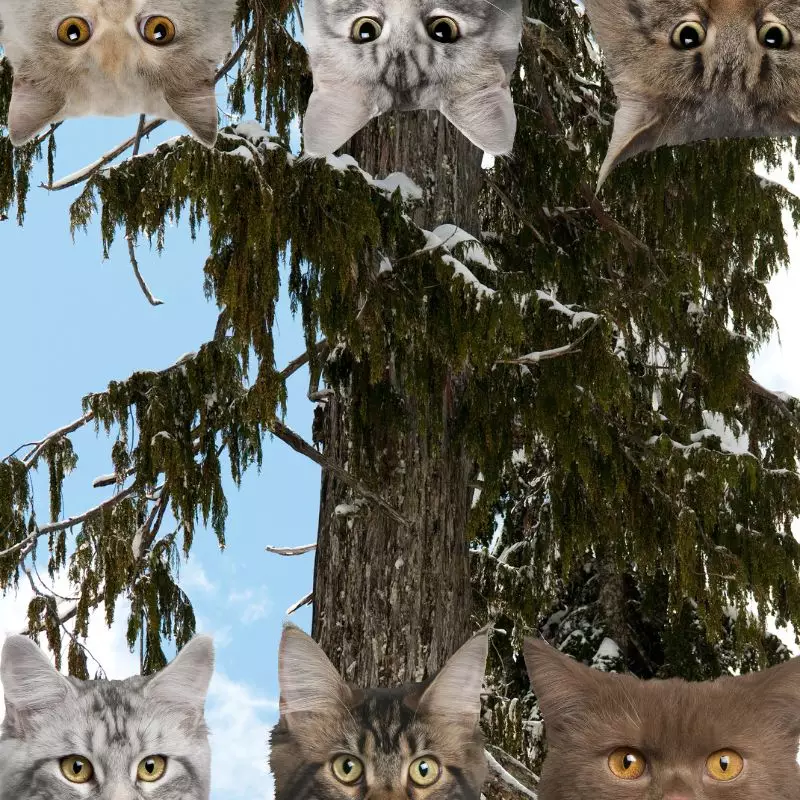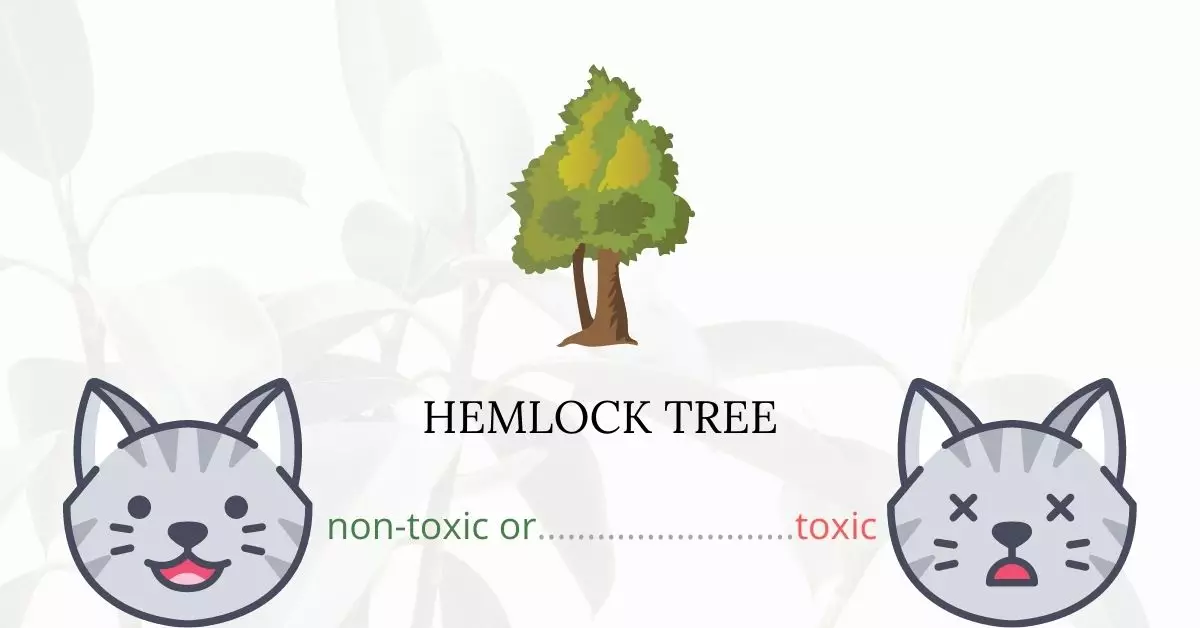Yes, certain types of Hemlock trees can be extremely toxic to cats. Conium maculatum, popularly known as poison hemlock, and several other species from the genus Cicuta, like water hemlock, are highly poisonous. It is essential not to confuse these with other non-toxic plants. While some Hemlock trees may appear on The American Society for the Prevention of Cruelty to Animals (ASPCA) list of non-toxic plants for cats, the aforementioned species are exceptions and should be approached with caution.
This article has been crafted in collaboration with a team of experienced DVMs (doctors of veterinary medicine). Through their insightful contributions, we provide precise and current details about the potential risks associated with the Hemlock Tree and its effects on cats. Our research process is meticulous, encompassing data gathered from high-authority websites such as the ASPCA and PetMD to ensure that our readers are equipped with accurate knowledge.
Can Cats Eat Hemlock Tree?

A small bit of any hemlock tree part eaten by your cat won’t put it in grave danger. Despite the fact that the majority of plants are generally healthy, some of them can make your cat throw up or have diarrhea, so it’s best to consult a vet if this happens.
Cats’ gastrointestinal systems and metabolisms have been made to accommodate consuming meat because they are obligate carnivores. They require crucial nutrients that only meat can give them because they have poor digestion and can’t get such elements from plants.
What is Hemlock Tree?

Any coniferous tree belonging to the genus Tsuga of the pine family, Pinaceae, that has small cones and short, flat, needle-like leaves with two white lines on the underside is referred to as “hemlock” in popular usage, notably in the United States and Canada. North America and Asia are home to this genus, which has nine living species.
The name is also used to describe the wood of these trees. Furthermore, Conium maculatum of the Apiaceae family of parsley plants, specifically, are referred to by the popular name “hemlock” as well (poison hemlock). The species are all evergreen trees that grow from 20 to 60 meters tall and only occur in moist environments with little to no water stress.
Keeping Cats Away From Hemlock Tree

A towering tree may lure cats, who might even jump on them. Fortunately, you can stop them with a few easy techniques. Wrap your tree stump in foil and scatter some lemon or orange peels around the base because most cats detest foil and citrus aromas.
Pine cones can be scattered around the base. In a small area of the yard, cultivate a separate bed of catnip plants. While not all cats are crazy about catnip plants, those that are may make a catnip patch their own personal haven and preferred hangout.
Plants to Avoid For Your Cats
If you are a cat owner and unsure if the plants growing in your yard are harmful to your cats, check out this list of toxic plants for cats. You can also check our list of non-toxic plants for cats.





